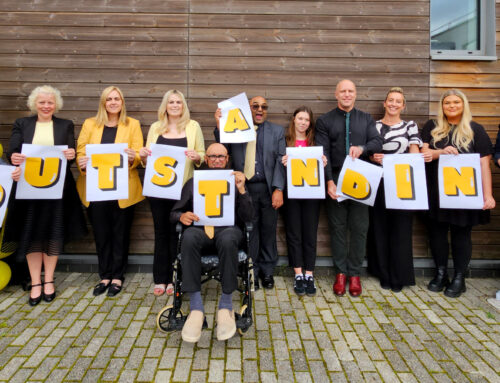
Results Day – Apprenticeship FAQs Answered
The landscape has changed and as thousands of young people pick up their results this week, they will be deciding to take advantage of the fast-track to their dream career which an apprenticeship brings.
Not just an alternative to University, an apprenticeship can provide a stepping-stone to a multitude of roles, from marketing to IT, accountancy to plumbing. Being paid to learn from industry experts provides a unique opportunity for someone to earn a salary whilst learning useful skills and gaining a nationally-recognised qualification.
Many young people are advised to follow an academic route to further education without a full understanding of their learning style. For those who learn practically, rather than through listening or visually, learning as they do can achieve much higher levels of success and satisfaction.
What Is An Apprenticeship?
Apprenticeships are for anyone over the age of 16 not already in full-time education. Apprentices are employed exactly the same as any other member of staff, with the same rights, annual leave and any other entitlements.
What Training Do Apprentices Get?
All apprenticeships are linked to a college, university or private training provider and all result in a nationally recognised qualification. At least 20% of an apprentices’ working hours will be spent training. This is usually a combination of structured classroom sessions, workshops or coursework from their college or training provider and training at work such as shadowing colleagues and mentoring.
At Professional Apprenticeships, our learners receive a monthly classroom session and a monthly 1-1 tutor session on top of their training and coursework.
How Much Do Apprentices Get Paid?
The national minimum wage for apprentices is currently £4.30 an hour. However, this is the minimum and many employers choose to offer a more competitive salary, depending on the role and industry. Many of the employers we work with pay a minimum of £12,000 per annum.
What Are The Entry Requirements For An Apprentice?
It depends on the level of the apprenticeship. For higher level qualifications (level 4 and above), employers may ask for A-Levels or a level 3 qualification. For a level 3 qualification, employers typically ask for English and Maths GCSE passes and/or relevant experience and for a level 2 qualification, the only actual requirement is that the apprentice must be over the age of 16.
What Other Benefits Do Apprentices Get?
In addition to their training, salary and any other perks of employment, apprentices may be eligible for a number of money-saving schemes such as NUS Extra card, 16-25 railcard, £1,000 bursary for care leavers and support with interview clothing.
What Qualification Do They Receive?
There are various levels of apprenticeships from level 2 qualifications which are equivalent to 5 GCSE passes, right up to level 7, which is equivalent to a masters degree. We specialise in level 3 apprenticeships which are the equivalent to 2 A-Levels.
What Are The Career Prospects Following An Apprenticeship?
Apprenticeships are increasingly being seen as a fast-track to career success. A recent study found that 85% of apprentices remained in work following completion of their training, two-thirds with the same employer. Half of the companies surveyed reported that it takes their apprentices just 5 years to reach management level. Apprenticeships can provide real prospects to success.
How long does an apprenticeship take?
It varies, depending on the qualification. The minimum duration is 12 months but higher-level apprenticeships can take up to 6 years. Typically, the level 3 apprenticeships we deliver take from 12-18 months.
How Do I Find An Apprenticeship?
Our current vacancies can be found here. The Find An Apprenticeship Service is also a great resource for vacancies nationally.

Written by Lydia Thornton
Digital Marketing Apprentice






